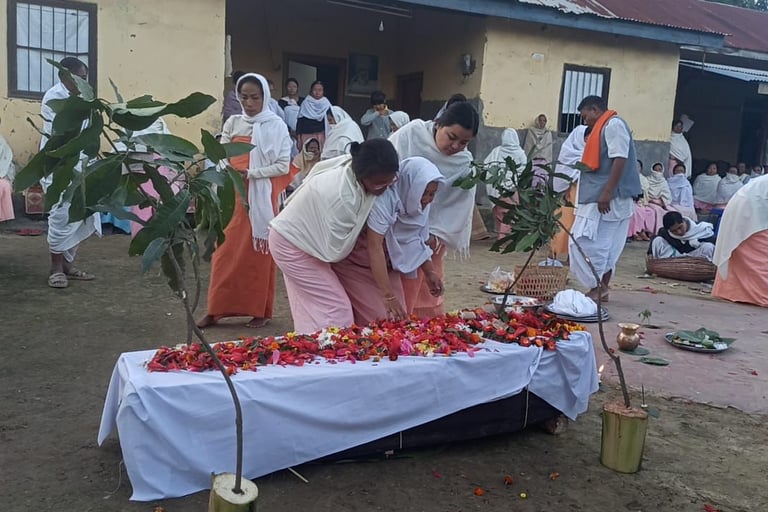Manipur Strife: Airlifting of Victims' Bodies Marks Emotional Closure Amid Lingering Wounds
CONFLICT
Imphal: A somber scene unfolded in Manipur on Thursday as 64 bodies of victims from the ongoing ethnic strife were airlifted to three districts for their final rites.


The state government act followed a Supreme Court directive issued on November 28, emphasizing the need for dignified burial or cremation for all victims, including the 88 bodies that remained unclaimed by their respective families by December 15.
The bodies, predominantly of the Kuki-Zo tribes, had been held in mortuaries at the Regional Institute of Medical Sciences (RIMS) in Imphal West and JNIMS in Imphal East.
Official sources confirmed that 41 bodies were flown to Churachandpur, with the remaining 19 transported to Kangpokpi and four airlifted from Churachandpur and brought to Imphal valley districts.
The logistical operation, shrouded in tight security, saw the police move the bodies from the mortuaries to the headquarters of the Inspector General of Assam Rifles before subsequent airlifting.
Highlighting the complexities of the situation, the report submitted by the state government to the apex court revealed that out of 175 people killed in the ethnic conflict, 169 were identified. However, only 81 bodies were claimed by their families.
The emotional toll was evident as families mourned the loss of their loved ones, some recounting the tragic events that led to their demise during the conflict.
The situation remains complex as some families, like that of Ibochou, have not yet claimed the bodies, leaving the government to take custody for now. For others, like Premita, whose home was torched during the conflict, the pain lingers as they grapple with the loss of family members and seek refuge in relief camps.
This event reflects the deep-seated wounds inflicted by the strife, not only in the loss of lives but also in the fractured communities left behind. The government’s efforts, while aiming for closure, highlight the need for sustained reconciliation and healing in the region. The process of rebuilding shattered lives and fostering unity remains a formidable challenge in the wake of such tragedies.

